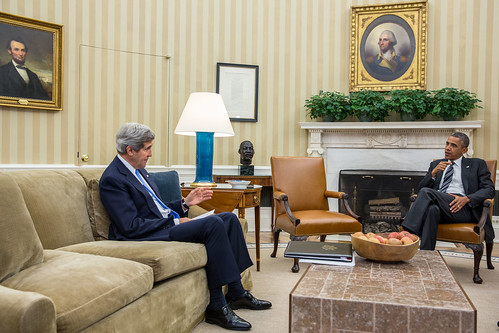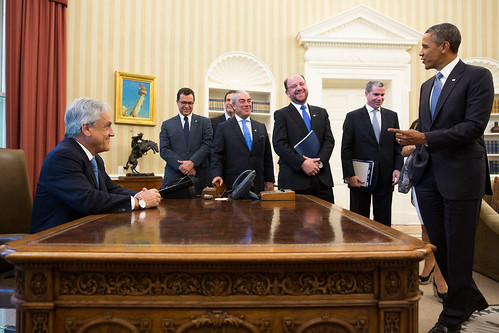When I want to know what to think about some conflict in the Middle East that America might be getting into, I turn to Juan Cole. I found these speculations about what America might do in Syria particularly interesting:
In any event, what we should think of war with Syria depends a whole lot on the scope of the mission. What we're looking at here is modeled off of Libya and Kosovo a lot more than Iraq, as it doesn't seem that we're sending in ground troops to occupy the country. That's no guarantee that it'll have results like Libya and Kosovo, which I mostly see as successes of American military policy. But if it doesn't, that'll be because of logistic and tactical differences that involve the specifics of the situation in Libya, Kosovo, and Syria, rather than broad and general considerations about the nature of the war. I don't have an opinion yet on what should be done in Syria, because I don't have a good handle on the specifics of the situation.
Of course, the point that we'd do a lot better to devote money to buying insecticide-treated bednets to protect people from malaria than bomb Syrian government installations in the name of humanitarianism is exactly right. That's an argument for defunding American war-fighting capacity in general in favor of giving more money to humanitarian causes, which I think is exactly the right thing to do. I don't know how to bring that fact to bear on the situation at hand, though. It's not like America is going to buy the bednets with the money if we don't go to war.
It is not clear what an American intervention would achieve. It is likely that Washington will conduct a limited punitive operation, perhaps hitting regime buildings with Tomahawk missiles. The latter would avoid the regime’s sophisticated anti-aircraft systems, which might be able to fell an F-18 fighter jet.
It should be obvious, however, that any such strike would be a form of retaliation for President al-Assad’s flouting of international law. It would not actually protect Syrians from their government, and it would be unlikely to alter the course of the civil war.Fred Kaplan's excellent article in Slate suggests something similar, though it also considers the possibility that Obama is considering a larger mission to destabilize the Syrian regime. Kaplan emphasizes that Obama wants to defend one of the few international norms that there seems to be a real consensus around: don't use chemical weapons. I don't know if there's a good reason for having that particular norm. (Gas is a horrific weapon in many ways, but is it really worse to be killed with nerve gas than to be shot by a helicopter gunship or a drone? Gas is probably not as bad as land mines, which stick around to kill noncombatants long afterwards.) But I am a believer in a rule-governed international framework that curtails violence, and defending such a framework requires punishing violators. Doing just enough to make Assad regret using chemical weapons may be the goal here.
In any event, what we should think of war with Syria depends a whole lot on the scope of the mission. What we're looking at here is modeled off of Libya and Kosovo a lot more than Iraq, as it doesn't seem that we're sending in ground troops to occupy the country. That's no guarantee that it'll have results like Libya and Kosovo, which I mostly see as successes of American military policy. But if it doesn't, that'll be because of logistic and tactical differences that involve the specifics of the situation in Libya, Kosovo, and Syria, rather than broad and general considerations about the nature of the war. I don't have an opinion yet on what should be done in Syria, because I don't have a good handle on the specifics of the situation.
Of course, the point that we'd do a lot better to devote money to buying insecticide-treated bednets to protect people from malaria than bomb Syrian government installations in the name of humanitarianism is exactly right. That's an argument for defunding American war-fighting capacity in general in favor of giving more money to humanitarian causes, which I think is exactly the right thing to do. I don't know how to bring that fact to bear on the situation at hand, though. It's not like America is going to buy the bednets with the money if we don't go to war.










